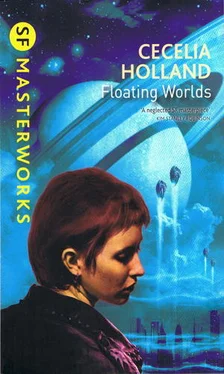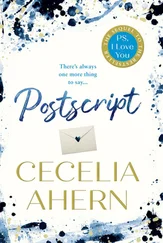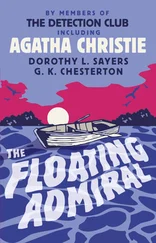Paula was too tired and hungry even to complain. They slept in the shelter of a sheer hillside, shivering. Three or four times during the night air cars flew overhead, waking them. Once a searchlight sliced through the dark around them, and they huddled against the cold ground, their heads buried in their jackets, until it left. Before dawn hunger drove them out again.
Crisscrossing the ridges and notched hills below the lake, they divided up, moving along on parallel courses three hundred feet apart, searching for food. She chased a gray snake along a dusty hillside from tuft to tuft of grass. The air was smoky yellow. The dry ground gave up an odor like an empty husk. Her thigh bones ground in the sockets of her hips. Her mouth was filmed and gluey.
In the late afternoon Bunker shouted on the far side of a gulley. She scrambled down the steep bank, knocking loose a shower of small stones and dirt, and ran toward his voice. He was on his knees digging into the bank of the ravine. His arms were gray with dirt.
“I knew that mutt had a den up here somewhere.” He scooped dirt away. “Watch out—she’ll be back.” He plunged his sleeve down over his hand, reached deep into the hole he had dug, and took out a squirming black puppy.
Its yips were small as rabbit sounds. Paula straightened. The brown dog came running along the floor of the ravine. Paula charged it, shouting, and the dog veered off. Its stained teeth showed. Bunker was taking pup after pup out of the den. Their squeaks brought their mother forward, snarling. Paula moved between her and the den. She snatched a long branch off the ground. The dog faced her, its ears flat, and growled.
“Don’t take them all—leave her a few.”
“Paula Pityheart.” He took off his jacket and wrapped the puppies up in it. “Let’s go.” He slung the wiggling bundle onto his shoulder. When Paula moved, the dog darted past her and rushed into its den. Paula and Bunker went down the gulley to the open ground, made a fire, and roasted five puppies.
Day after day, from the first light to the last, they searched for food. Some days they found nothing at all. Paula fell sick, but she dared not stop hunting even for an hour. One resting while the other tracked, they walked down wild dogs and foxes. In the bombed-out buildings they cornered rats. They went north again, past the head of the lake. Paula dug sacks of rotting garbage out of the trash bins. They broke into an apartment but found nothing to steal except water. Even the clothes in the closets were as shabby as their own. As the lake dried up and turned foul, good water was nearly as scarce as food, until they found the narrow opening into the underground river, whose water was sweet. One evening, while she was rummaging through a garbage can outside the Nikoles Building, someone called her name.
She ran. The voice screamed, “Wait!” Twenty strides away, at the corner of the building, she turned to look back, ready to run again. A small figure was walking after her.
“An Chu.” She took a step forward. Maybe it was a trap. A smile spread across the other woman’s round face. She put out her hands, and Paula rushed toward her.
“I knew it was you—Jennie said it was somebody with brassy hair—”
Paula hugged her tight, her face against the other woman’s coarse black hair. Her throat thickened. She could say nothing. An Chu babbled in her ear, “We’ve been looking for you—Willie thought he saw you once—” An Chu held her tight, one arm around her shoulders, one around her waist. “Where are you living?”
Paula stepped back. “In the…” She nodded toward the south of the dome. She cast a look around them, to be sure they went unwatched.
“In the open?” An Chu took her hands. “Are you hungry?”
“I’m starving.”
“Come with me.”
Paula followed her down the long side of the building, but An Chu did not go through the door. She hooked her arm through Paula’s arm. “The hourlies say you’re dead.” She squeezed Paula’s arm against her, smiling wide. “The Dragon Lady of the Styths. I took the hourlies around to everybody I knew and told them who you really are.” They passed the end of the building and went into the open. The evening was warm. Mosquitoes buzzed around her face. High overhead, the red lights of an air car flashed off and on. An Chu glanced up casually and walked Paula in a circle.
“Aren’t you living there?” Paula asked.
“Yes—we all are, Willie and Jennie and I. Jennie’s the only one who’s official. You can’t have an apartment unless you have a job-card. You don’t get a job-card unless you work. With everybody on strike, that’s hard. Jennie works in the dome-maintenance crew. We decided she could, since it’s for our sake as much as the Martians’.” She looked up into the sky. “He’s gone. Hurry.” Stooping, she pulled up a round piece of the turf. Paula climbed into the hole in the ground.
She slid feet-first along a steep lightless tunnel, smelling of clay. The curved wall was slippery under her hand and a protruding root lashed her face. At the bottom of the slide she came to rest against a plastic wall. An Chu came after her. She reached over Paula’s shoulder and tapped on the wall. It slid open. Paula climbed through into a long room hollowed out of the dirt beside the wall of an underground building.
“Who are you?”
She stood, facing a strange man, fair-faced, with long yellow hair. An Chu crawled after her into the narrow room. “She’s Paula Mendoza. I told you we’d find her.”
The only furniture in the room were two cots against the outer wall and a big old breakfront cupboard opposite. An Chu opened the wing-doors and took out a loaf of bread and a chunk of cheese.
“Here.” She gave them to Paula. “This is Willie Luhan. He’s my friend, mine and Jennie’s.”
Paula sat down on the cot and sank her teeth into the cheese. Her stomach clenched with yearning. An Chu said to the yellow-haired man, “She’s been living in the open. She can stay with us.”
“It’s fine with me,” Willie Luhan said.
“I’m not alone.” Paula tore off a piece of the bread and stuffed it into her mouth.
“Who’s with you?” An Chu asked. She brushed back a strand of her black hair. It was much longer than Paula remembered.
“Dick Bunker. He was on the Committee.”
“We don’t know him.”
“I know him.”
An Chu pressed her fingers to her cheeks, her gaze turning to her friend. The man scowled. “Nobody comes in here unless we know him. That’s our rule. We have to do it that way, you see.”
Paula wiped her mouth on her arm. The taste of the cheese lingered on her tongue. “Then I’ll stay out there with him.”
The two people before her looked at each other again. Willie licked his lips. His wide face was troubled. An Chu nodded to Paula.
“Bring him.”
“I have to get to Vancouva,” Bunker said. “Isn’t there any way at all?”
“I’m sorry.” The woman spoke with a Martian accent. “Unless you have travel papers from the dome secretary, I’m not authorized to sell you tickets. If you’ll just—”
Only her head and shoulders showed above the back of her chair. Paula slid through the door behind her. There were three or four other people in the office waiting room, on the far side of the partition, and she dropped to her hands and knees to keep from being seen.
“But my wife is there,” Bunker cried. “I have to get there. Can’t you see that?” He gestured dramatically with both hands. “I have to!”
“Well,” the woman said nervously, “I can’t do anything about that, I’m sorry.”
Bunker launched into his passionate lie. Her eyes followed the wide movements of his hands. Paula sneaked up behind her and lifted a card-folder out of the shoulder bag hanging on the woman’s chair.
Читать дальше











